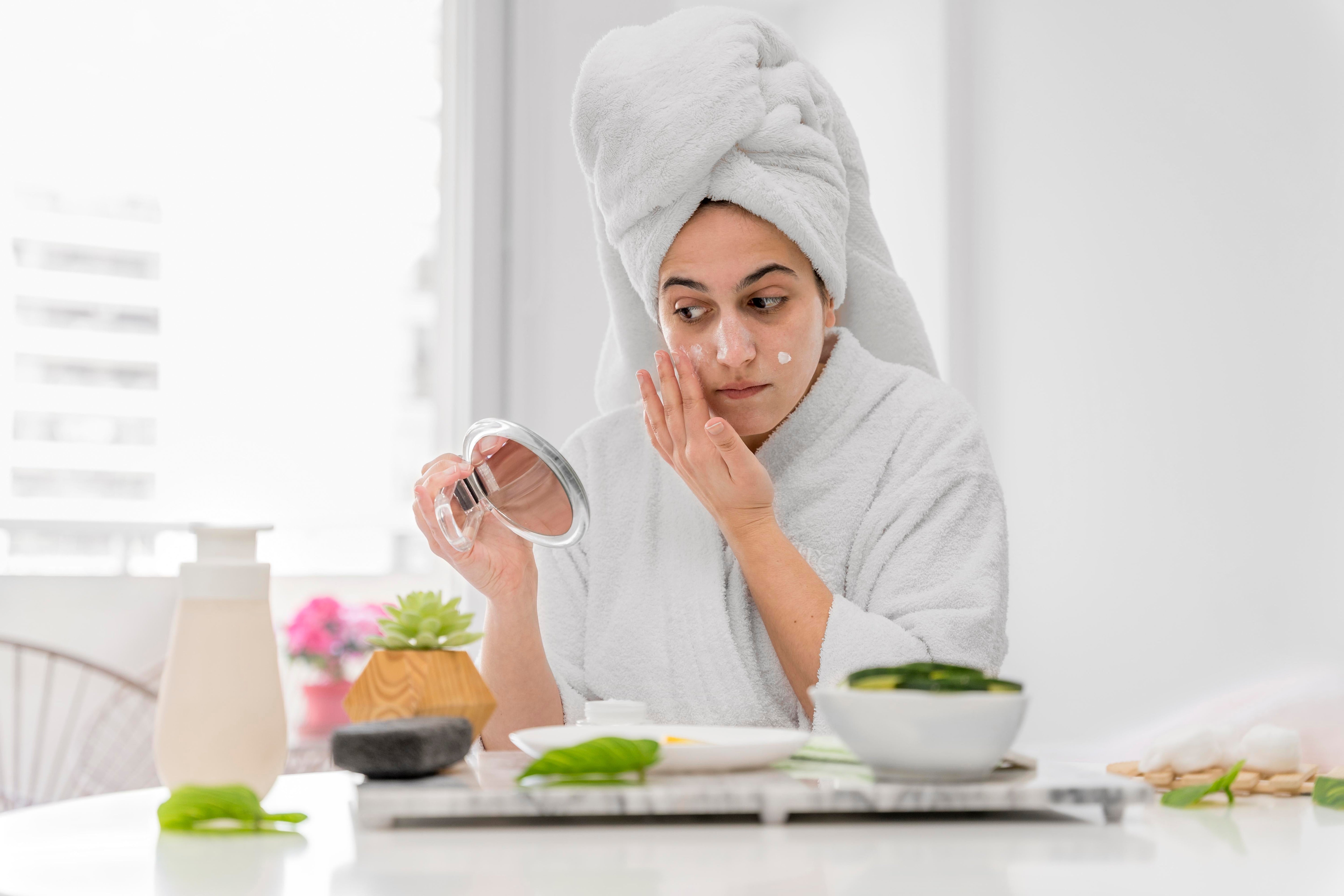
The Importance of Using Vitamin C in Your Skincare Routine
If you are tired of acne, hyperpigmentation, or aging signs and want a necessary component that can help you with these skin concerns? The best component for these skin concerns is vitamin C. Wondering why Vitamin C? Let’s understand why vitamin C should be an essential part of your skincare routine.
Vitamin C or ascorbic acid, an essential nutrient in overall health, not only a vitamin in food but also has significance in skincare. This powerful antioxidant is appreciated for its ability to rejuvenate the skin. It acts as a component helpful in brightening skin complexion that can defend against the environmental factors and offers a range of benefits. Here is a piece of detailed information regarding The Importance of using Vitamin C in Your Skincare Routine.
Numerous Features of Vitamin C result in benefits for your skin:
Vitamin C, an antioxidant, has numerous features that can result in offering benefits to your skin.
- Vitamin C acts as an antioxidant that can protect the cells from damage caused by free radicals. It can also protect the skin from the unstable molecules that contribute to aging and diseases, and vitamin C keeps your skin youthful.
- It plays an important role in the collagen formula. Vitamin C is an essential component for the synthesis of collagen, which can form the foundation of skin, bones, and blood vessels.
- This is a water-soluble vitamin and can enhance the absorption of iron from plant-based foods.
- It is a component helpful in wound repair and scar tissue formation, and the body’s natural healing processes.
- Maintain a healthy immune system to help the body fight against diseases and infections.

1. Skin Brightening:
Vitamin C helps reduce the appearance of dark spots, hyperpigmentation, and sun damage, making it a perfect choice for a skincare routine. It can help in fading the dark marks and give the skin a glowing and radiant appearance. Melanin is responsible for skin color, it plays an important role in inhibiting the melanin production that can result in lightening the dark spots. Vitamin C can prevent the enzyme tyrosinase from triggering melanin production.
2. Antioxidant Protection
Antioxidant properties of Vitamin C help in protecting against environmental damage such as pollution and UV radiation. These factors can result in free radicals that cause oxidative stress leading to skin damage and premature aging signs. Free radicals can lead to wrinkles and loss of elasticity. This potent antioxidant can neutralize free radicals and help in skin repair. Helpful component to preserve skin’s youthful appearance. Vitamin C can also help in protection against UV radiation and the reduction of sun damage.
3. Collagen Production
Collagen is an essential protein that offers firmness and elasticity to the skin. With age, the collagen production naturally declines and can lead to wrinkles and loss of youthful features. Vitamin C plays an important role in collagen synthesis. With the stimulation of collagen production, vitamin C can help in maintaining the elasticity and firmness of your skin. Vitamin C can be a beneficial factor for improving skin texture and offers a smooth and fresh glow to your skin.
4. Sun Protection
Vitamin C can help reduce sun damage. The fact of the matter is that Vitamin C can’t replace sunscreen, but it can help reduce the effects, such as redness and inflammation due to sunburn. Vitamin C is important for preventing the formation of dark spots and age-related skin issues. This important component can help offer additional protection against sun damage.
5. Skin Hydration
Skin hydration is the most important step for fresh and nourished skin. Vitamin C helps provide moisture to the skin. Dehydration can make your skin look dull, dry, and wrinkled, Vitamin C has hydrating properties that help in retaining moisture in the skin. Helpful in preventing moisture loss and boosting the skin’s natural barrier. It can prevent the water from evaporating, which helps in skin hydration and skin look youthful and plump.
6. Anti-Inflammatory
The anti-inflammatory properties of vitamin C can help in preventing hyperpigmentation and reduce the redness and irritation of the skin. Its anti-inflammatory properties make it a beneficial component for all skin types, especially sensitive and acne-prone skin.
How can I use vitamin C in my skincare routine?
Vitamin C is an effective ingredient that can help with numerous skin concerns. You can incorporate vitamin C into your skincare routine by applying a vitamin C serum after cleansing and toning. Vitamin C can be available in different skincare products such as serums, cleansers, moisturizers, and sunscreens.
Use of Vitamin C according to timing:
- You can use vitamin C in your daily skincare routine, either in the morning or evening, or both.
- In the morning, you can use vitamin C, a popular antioxidant that can help in protecting your skin from factors such as pollution and sun damage.
- Use of vitamin C in the evening is also important, but it’s more important to follow with a moisturizer that can lock in the benefits.
Applications of Vitamin C:
- Firstly, cleansing is important; you can start with a clean face by removing the makeup and impurities from the face.
- You can use toner after cleansing.
- Add a few drops of vitamin C serum to the face with a gentle massage.
- You can apply a moisturizer that can hydrate your skin deeply and protect it.
- Use sunscreen after moisturizing in the morning to protect your skin from sun damage.
Does Vitamin C have any side effects?
Vitamin C is usually suitable in skincare, but can have potential side effects that include skin irritation, such as redness, itching, burning, and dryness. Let’s have a detailed look at the potential side effects of vitamin C on the skin:
-
Skin Irritation
Various skin irritations, such as redness, itching, and burning, can be seen as the common side effects of vitamin C, especially with the higher concentrations or sensitive skin.
-
Dryness
Dryness is also a common side effect of Vitamin C that can lead to flakiness and make skin dry, if not followed by moisturizer properly.
-
Allergic Reactions
Sometimes, there can be some allergic reactions such as swelling, hives, or itching with the excessive use of vitamin C.
-
Increased Sun Sensitivity
Some formulations with ingredients can increase sun sensitivity; it is important to use sunscreen daily.
Final Talk:
Vitamin C is beneficial for improving the appearance and health of the skin. It is helpful for the reduction of hyperpigmentation, protection against sun damage, and enhancing collagen production. You can invest in a long-term solution for healthier and youthful skin by adding Vitamin C into your skincare routine. You can prevent the signs of aging with vitamin C, which is an important ingredient that helps in achieving skincare goals.
Frequently Asked Questions for the Importance of Vitamin C in Skincare Routine:
Q. How to Minimize the Side Effects of Vitamin C?
Ans. You can minimize the side effects of vitamin C by following some steps:
You can apply the moisturizer with vitamin C to avoid dryness and irritation.
Apply sunscreen daily in your skincare routine when using Vitamin C, which can increase sun sensitivity.
Test a small area of your hand to check if there are adverse effects of vitamin C on your skin.
Avoid the use of vitamin C with harsh ingredients such as retinol or AHAs.
Q.2. Can I use vitamin C with retinol?
Ans. Yes, using vitamin C with retinol can be a good choice. But it is good to use both of them at different times for their proper effective results. Sometimes, vitamin C with retinol can irritate, so first test a small area to ensure the adverse effects of the components.
Q.3. Can I use Vitamin C daily?
Ans. Yes, you can use Vitamin C daily, but excessive use of vitamin C can cause potential risks. So, needs to be in the recommended dosage limit of vitamin C to avoid any negative effects.
Q.4. How should I start vitamin C in skincare?
Ans. You can start with a gentle cleanser, apply a vitamin C serum after cleansing and before moisturizer. You can finish it with the sunscreen if you are using it in the morning.








